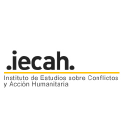WORKING WITH DG ECHO AS AN NGO PARTNER | FPA 2014 - 2020
RISK ASSESSMENT
In order to comply with requirements of the Financial Regulation as regard to budget implementation, ECHO has put in place risks mitigation measures which may vary depending on the specificity of the partnership and the nature of the actions funded.
The actions funded by ECHO may therefore be subject to appropriate controls, at the grant award and final payment stages, based on the risk assessment of the partner’s financial management capacity.
GRANT AWARD STAGE
At contracting stage, ECHO will evaluate the risks it takes in pre-financing an action, by assessing the capacity of the partner to fund its activities in the short and medium term. The risk being that a partner does not implement the Action and the pre-financing cannot be recovered.
The financial solidity of the partner will be assessed, during the partner's periodic assessment, using standard financial indicators, such as net equity, net result, liquidity ratio, turnover and the level of dependence to ECHO funding. The benchmarks to assess the level of risk assumed by ECHO when pre-financing an Action will be fixed on the basis of two indicators:
Liquidity ratio (i.e. Current assets / short-term liabilities):
the NGO should be capable of covering its short-term commitments, namely paying its charges when these are due. According to accepted standards this should be higher than 1. In order to take into consideration the particularities of NGOs operating in the field of humanitarian aid, the benchmark applied by DG ECHO has been fixed at 0.95.
Financial independence (i.e. Equity - Non-restricted funds / Total liabilities):
this is an indicator of the NGO's solvency, namely its capacity to operate in the future, and the capacity to cover its medium and long-term commitments. According to accepted standards, this should be above 20%.
-
For organisations with one or both indicators below these thresholds, DG ECHO's risk exposure, namely the total amount of pre-financings paid to the organisation and not yet claimed as consumed, should be limited. This risk exposure shall not exceed a percentage of the organisation's turnover.
-
The partners whose indicators are above both thresholds may sign Specific Grant Agreements with ECHO without any particular limitation.
-
Partners which have a liquidity ratio below 0.95 over a consecutive number of years are considered as not meeting the criteria to remain a partner. In such case, ECHO may terminate their FPA.
-
For partners whose financial independence is below 20%, ECHO's financial exposure should be limited to a given amount.
The exposure of ECHO is the total amount of pre-financings paid to the organisation and not yet claimed as consumed by a declaration of expenditure at the submission of the request for second pre-financing or Final Report stage. This exposure is referred to as “open amount”. Please note that the submission of interim report will not affect the threshold of the open amount.
This risk exposure shall not exceed a percentage (15 or 20%) of the organisation's turnover, referred to as the threshold. The threshold will be calculated by multiplying the operating income of the partner by the risk exposure. The operating income will be extracted from the latest certified audited accounts.
| Liquidity ration | Financial independence | Indicative limitation for financial exposure | Example of mitigation measures | |
| > 0.95 | > 20% | No limitation | 15% of turnover | |
| > 0.95 | 10%>X<20% | 20% of turnover |
|
|
| > 0.95 | 0%>X<10% | 15% of turnover |
|
Before signing a Specific Grant agreement with a partner in this situation, ECHO will look at ECHO accepted exposure (threshold) and the current open amount.
These thresholds are however indicative. In most cases, the threshold will have no influence, as it will be higher than the open amount. In those cases where the open amount is higher than the threshold and that ECHO wants to sign a new agreement, ECHO might decide to impose mitigating measures.
HOW THE FINANCIAL RISKS ASSESSMENT IS TAKEN INTO ACCOUNT AT GRANT AWARD STAGE?
Before launching the agreement procedure, ECHO will check whether the partner has a threshold and whether the partner’s open amount is superior to the indicative threshold of the concerned partner.
If the open amount is above the threshold, ECHO desk office will have to justify their choice to sign an agreement with that partner in that moment in time. ECHO will give its opinion on the justification based on the following criteria:
-
The calendar of the ongoing actions: are the ongoing actions close to an end? Is ECHO expecting Final Reports soon?
-
The character of the crisis covered by the new agreement - is it an urgent action? Forgotten crisis? Follow-up Action, etc.
-
Whether the Action is submitted as a consortium or not - if the lead partner has a threshold, what is its actual share in the Action? (please note that if the partner with a threshold is an implementing partner in an ECHO Action, the threshold is not taken into account when signing the agreement.)
Depending on this analysis, mitigating measures can be established, such as:
-
pre-financing the Action in two instalments (50% and 30%) instead of one;
-
splitting the Action in order to reduce the amount;
-
postponing the signature of the agreement.
In any case, please consider that the threshold is not a criterion limiting the partner’s capacity to submit a proposal.
LIQUIDATION STAGE
The risk assessment at liquidation stage consists in analysing the capacity of the partner to manage the financial and procedural aspects of an Action, and more precisely the level of assurance to claim eligible expenditure.
This risk is calculated on the basis of the non-eligible expenditures detected at final payment and during audits over a period of 3 years.
Based on this assessment, ECHO will adapt its financial controls at liquidation stage
A fast track procedure for the analysis of the final financial report means that the check on the general ledger will be limited. The fast track approach does not have a direct impact on the partner, as the partner will be asked to submit the same information for all its actions. It is only when ECHO will carry out a more in-depth analysis of the ledger that the partner might be requested further information.
Please note that The risk assessment does not have impact on the operational analysis of the narrative report.
| < 2% | Fast track liquidation. Ad hoc checks possible |
| >2% | Normal liquidation procedure |
RISK ASSESSMENT PROCEDURE
The risk assessment will be performed once per year on the basis of the information provided by the partner and the results of the controls performed by the different European bodies involved in checking the eligibility of expenditures.
The assessment will be done at the time of the periodic assessment. Together with the conclusions of the periodic assessment, the partner will receive the revised risks assessment.
The partner has access to the result of this risks assessment through an APPEL functionality: My organization logbook and it has always the possibility to contact ECHO when it is in possession of new elements which might have an impact on ECHO assessment.






